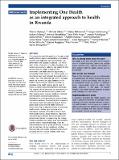| dc.contributor.author | Nyatanyi, Thierry | en_US |
| dc.contributor.author | Wilkes, Michael | en_US |
| dc.contributor.author | McDermott, Haley | en_US |
| dc.contributor.author | Nzietchueng, Serge | en_US |
| dc.contributor.author | Gafarasi, Isidore | en_US |
| dc.contributor.author | Mudakikwa, Antoine | en_US |
| dc.contributor.author | Kinani, Jean Felix | en_US |
| dc.contributor.author | Rukelibuga, Joseph | en_US |
| dc.contributor.author | Omolo, Jared | en_US |
| dc.contributor.author | Mupfasoni, Denise | en_US |
| dc.contributor.author | Kabeja, Adeline | en_US |
| dc.contributor.author | Nyamusore, Jose | en_US |
| dc.contributor.author | Nziza, Julius | en_US |
| dc.contributor.author | Hakizimana, Jean Leonard | en_US |
| dc.contributor.author | Kamugisha, Julius | en_US |
| dc.contributor.author | Nkunda, Richard | en_US |
| dc.contributor.author | Kibuuka, Robert | en_US |
| dc.contributor.author | Rugigana, Etienne | en_US |
| dc.contributor.author | Farmer, Paul | en_US |
| dc.contributor.author | Cotton, Philip | en_US |
| dc.contributor.author | Binagwaho, Agnes | en_US |
| dc.date.accessioned | 2017-07-24T18:34:58Z | |
| dc.date.issued | 2017 | en_US |
| dc.identifier.citation | Nyatanyi, T., M. Wilkes, H. McDermott, S. Nzietchueng, I. Gafarasi, A. Mudakikwa, J. F. Kinani, et al. 2017. “Implementing One Health as an integrated approach to health in Rwanda.” BMJ Global Health 2 (1): e000121. doi:10.1136/bmjgh-2016-000121. http://dx.doi.org/10.1136/bmjgh-2016-000121. | en |
| dc.identifier.issn | | en |
| dc.identifier.uri | http://nrs.harvard.edu/urn-3:HUL.InstRepos:33490888 | |
| dc.description.abstract | It is increasingly clear that resolution of complex global health problems requires interdisciplinary, intersectoral expertise and cooperation from governmental, non-governmental and educational agencies. ‘One Health’ refers to the collaboration of multiple disciplines and sectors working locally, nationally and globally to attain optimal health for people, animals and the environment. One Health offers the opportunity to acknowledge shared interests, set common goals, and drive toward team work to benefit the overall health of a nation. As in most countries, the health of Rwanda's people and economy are highly dependent on the health of the environment. Recently, Rwanda has developed a One Health strategic plan to meet its human, animal and environmental health challenges. This approach drives innovations that are important to solve both acute and chronic health problems and offers synergy across systems, resulting in improved communication, evidence-based solutions, development of a new generation of systems-thinkers, improved surveillance, decreased lag time in response, and improved health and economic savings. Several factors have enabled the One Health movement in Rwanda including an elaborate network of community health workers, existing rapid response teams, international academic partnerships willing to look more broadly than at a single disease or population, and relative equity between female and male health professionals. Barriers to implementing this strategy include competition over budget, poor communication, and the need for improved technology. Given the interconnectedness of our global community, it may be time for countries and their neighbours to follow Rwanda's lead and consider incorporating One Health principles into their national strategic health plans. | en |
| dc.language.iso | en_US | en |
| dc.publisher | BMJ Publishing Group | en |
| dc.relation.isversionof | doi:10.1136/bmjgh-2016-000121 | en |
| dc.relation.hasversion | http://www.ncbi.nlm.nih.gov/pmc/articles/PMC5335763/pdf/ | en |
| dash.license | LAA | en_US |
| dc.title | Implementing One Health as an integrated approach to health in Rwanda | en |
| dc.type | Journal Article | en_US |
| dc.description.version | Version of Record | en |
| dc.relation.journal | BMJ Global Health | en |
| dash.depositing.author | Farmer, Paul | en_US |
| dc.date.available | 2017-07-24T18:34:58Z | |
| dc.identifier.doi | 10.1136/bmjgh-2016-000121 | * |
| dash.authorsordered | false | |
| dash.contributor.affiliated | Binagwaho, Agnes | |
| dash.contributor.affiliated | Farmer, Paul | |


